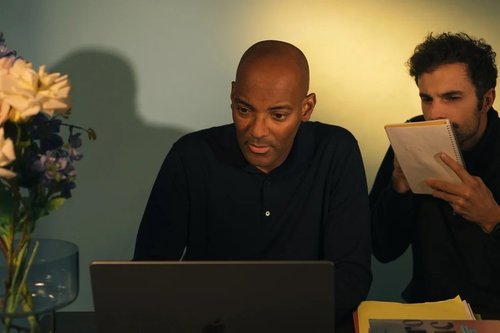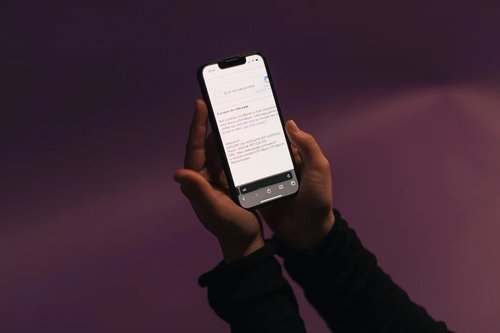Master the science of finding the right moment
Mar 14, 2022
5 mins


Freelance Content Creator
Bookstores are full of paperbacks about how to do all sorts of useful things. Yet few focus on when to do them. For many of us, most of the decisions we make about when we should do something are based on intuition or tradition. Drawing on multidisciplinary research, Daniel H Pink demonstrates that choosing the right moment for everything we do is a science. If you want to master and capitalize on your decisions, “When: The Scientific Secrets of Perfect Timing” is the book for you.
Divide time up into days
A day (with its 24 hours) is our main means of dividing up, configuring and gauging our time. For this reason, it’s vital to identify when we’re most willing to undertake projects. And for this we need to bear in mind that…
Our mood fluctuates over the course of the day. According to a study by sociologists Michael W Macy and Scott A Golder, regardless of our nationality, culture or religion, our mood rises in the morning, wanes during the afternoon and rises again at night.
Our performance varies throughout the day. German psychologist Hermann Ebbinghaus was a pioneer in conducting a series of experiments which showed that people were more efficient at learning and remembering sequences of ‘nonsense syllables’ during the morning than at night, suggesting that our cognitive abilities vary over the course of the day.
Sometimes we’re more creative at “less optimal moments”. In his book, Pink speaks of the “inspiration paradox,” which explains why we can experience greater creativity and inspiration precisely when we’re not at our best.
Ultimately, what’s most important is to identify your peak time during the day. (Pink provides a questionnaire in his book to help you). Once you know this, you can then organize your schedule around your own momentum.
Habits to incorporate into your routine
Whatever your momentum may be, the author encourages you to adopt a series of habits that will help you stick to your routines.
In the morning:
Drink a glass of water as soon as you wake up in order to hydrate your body and your brain.
Try to do some exercise and you will bolster your discipline.
Remember that famous saying about breakfast being the most important meal of the day? Well, Pink is all about the power of taking a lunch break.
In the afternoon:
Take quick breaks to maintain concentration levels and get energy. If you can, head outdoors.
Try to limit the amount of time you spend sitting down and walk around for at least five minutes for every single hour that you spend sitting at your computer.
Share your time. Spending time with people has an uplifting effect.
If you have the chance, a 20-minute nap can provide you with a boost of energy.
Don’t neglect any part of the process
Beginning
We’ve all at some point in our lives set ourselves new year’s resolutions: to start meditating, to learn a language or to network. The choice of date for undertaking your new project is anything but coincidental. Social scientists call this the temporal reference point and we use it to guide us through time. The first day of the month – and the week for that matter – work in the same way in our minds. (Just think how many times you’ve said that famous line: “From Monday, I’m going to…” ) Time references help us to see an overview of our lives, to focus on our objectives and to make better decisions.
The author cites the case of writer Isabel Allende who on January 8th, 1981 wrote a letter to her grandfather, which eventually led to her first novel: The House of the Spirits. Since then, she’s always started each novel on the same date in order to mark the beginning of a new project.
In your case, when starting a new project:
Choose a date that is important to you. This could be your birthday, the start of a new year, or any other date that is personally significant. Use this date to mark the beginning of your projects.
Visualize yourself “transforming” for your new projects. It’s difficult to get started if you’re stuck in the past.
Stock up on motivation. On the first day, you’ll undoubtedly be in high spirits, but what about after a month? Well maybe not so much. It’s for this reason that Pink recommends capitalizing on those initial moments when you’re highly motivated in order to set up leads, organize calls and master new techniques.
Middle
It’s often quite easy to start a new resolution or project, but our motivation falters as we reach the midway point. According to Pink, in order to overcome these low points, you need to follow the three following steps:
Identify interim milestones and don’t let them go unnoticed. To do this, you can establish medium-term goals and celebrate them as you hit them. This will help keep your motivation alive and well. You’ll also find it useful to publicly pledge to someone to stick to your plan. According to Pink, we’re more likely to hit our objectives if we’ve got someone holding us to account.
Learn to use midway points as a stimulus and to not feel overwhelmed. For example, ask yourself how many people are benefiting from what you’re doing or, to use the example set by US comedian Jerry Seinfeld, mark a cross on your calendar for every day you hit your objectives. That way, if the day comes when you just don’t feel like carrying on, you’ll see your calendar and you’ll see a line of 10, 30 or even 100 crosses, helping you to feel ready to rise to the occasion once again.
Use the midway point for providing direction and speeding up the pace. Make a list of your objectives, circle the ones you deem to be most important and reflect on how you’re going to reach them.
End
We often push ourselves more when we can see the finish line. Endings can be a positive force, providing us with the energy to reach our objectives and helping us to distinguish between what’s important in our lives and what’s not.
Set a deadline: this will help you to be more productive.
Try to find a meaning to the ending: be thankful for what you have learnt. Take a minute to think about what it means to have reached the end.
Get in sync with others
Don’t forget that the right moment often has to take into consideration other people. Therefore, the more in sync you are with the people who are going to be involved in a project, the more likely you’ll be to find the perfect time. Pink offers a series of exercises to help you improve your coordination and synchronization with others, which can help you improve both your mental and physical wellbeing:
Plan activities that require you to be part of a team, such as singing in a choir, running with someone or signing up to dance classes with a partner.
If you’re in charge of a group and you think that coordination is failing within the team, something as simple as telling inspiring stories can help you. This is because according to Pink, stories about failure or vulnerability help foster a sense of belonging.
Another strategy for ensuring cohesion within a team is to establish certain rituals. This could be something as simple as going for a drink together on Fridays after work.
As you can see, there’s a right time for everything and it’s not difficult to find it if you implement the advice set out by Pink. However, never forget that sometimes, the correct way to proceed is just to wait: if you believe that a decision needs time to mature, you’re undoubtedly right. Losing motivation during a project’s development phase is normal but remember that despair and dejection have short lifespans. So come up with an action plan and… don’t let anyone or anything stop you!
Photo: Welcome to the Jungle
Translated by Jamie Broadway
Follow Welcome to the Jungle on Facebook on LinkedIn and on Instagram and subscribe to our newsletter to get our latest articles every day!

More inspiration: Productivity & tools

Goal setting: How to bounce back when you feel like a failure
The big F word ... Failure. We all face it, but here’s how to make it your secret weapon for success.
Dec 18, 2024

Productivity boost: Why mental health outshines long hours
Long hours don’t equal better work. Discover how mental health support can unlock productivity and time efficiency in the workplace.
Nov 28, 2024

10 fun ways people are using AI at work
While many use AI for basic tasks like grammar checks or voice assistants, others are finding innovative ways to spice up their work days.
Nov 05, 2024

12 Slack habits that drive us crazy
Slack is a top messaging platform, but coworkers can misuse it. Over-tagging and endless messages can make it frustrating ...
Oct 16, 2024

10 CareerTok creators you should be following
Looking for career advice? CareerTok has quick tips from real experts on interviews and job offers.
Sep 25, 2024
The newsletter that does the job
Want to keep up with the latest articles? Twice a week you can receive stories, jobs, and tips in your inbox.

Looking for your next job?
Over 200,000 people have found a job with Welcome to the Jungle.
Explore jobs